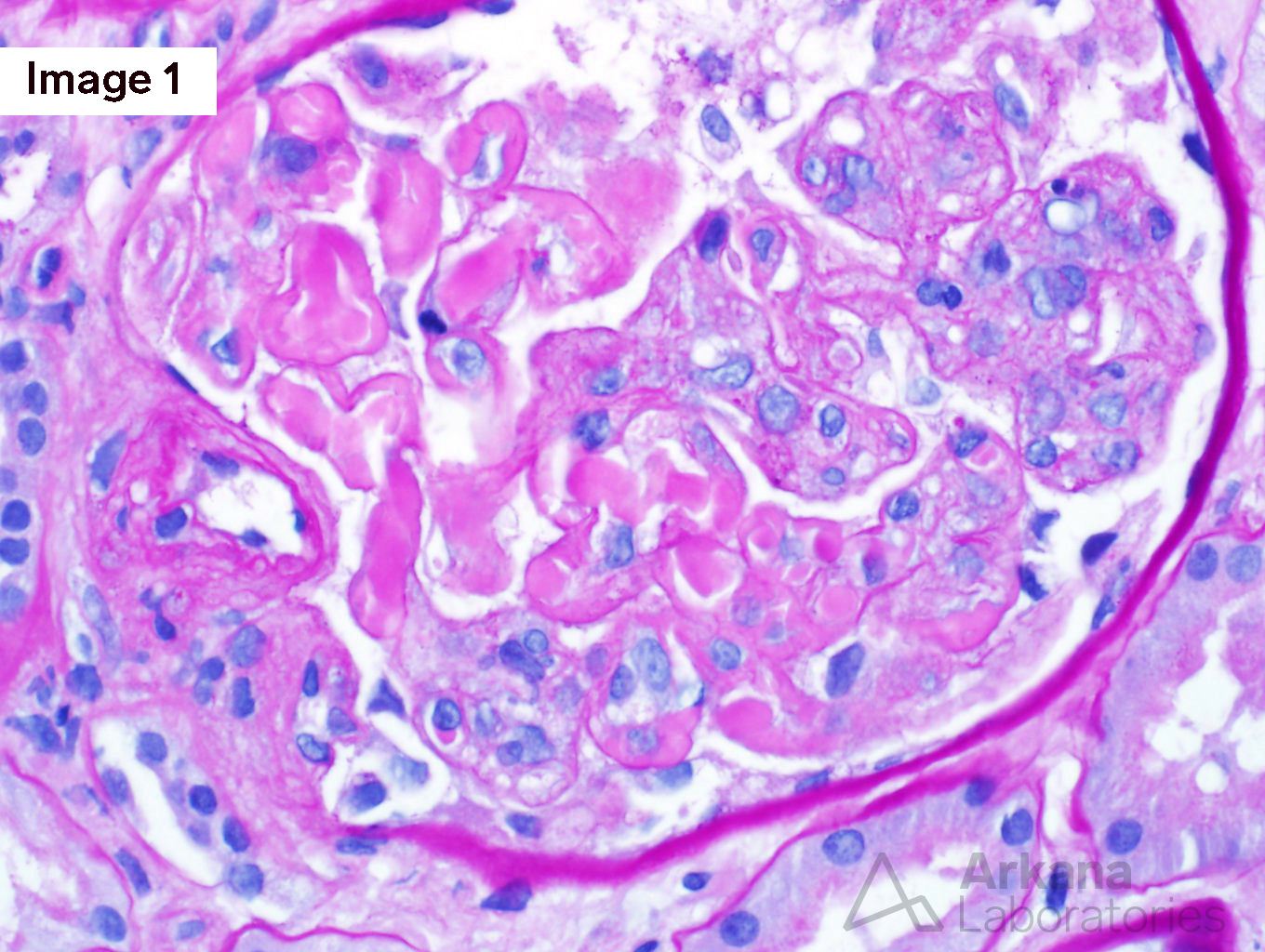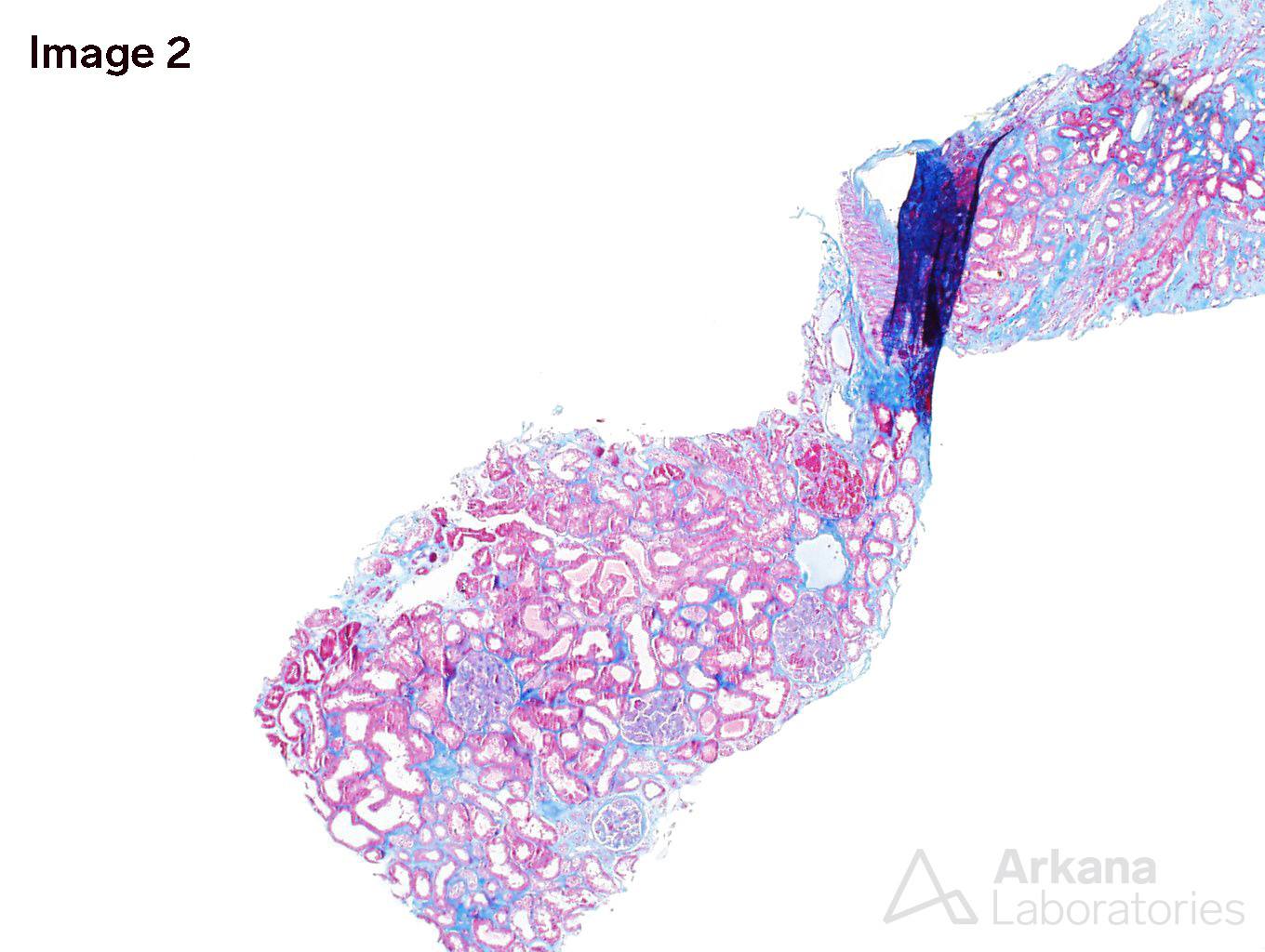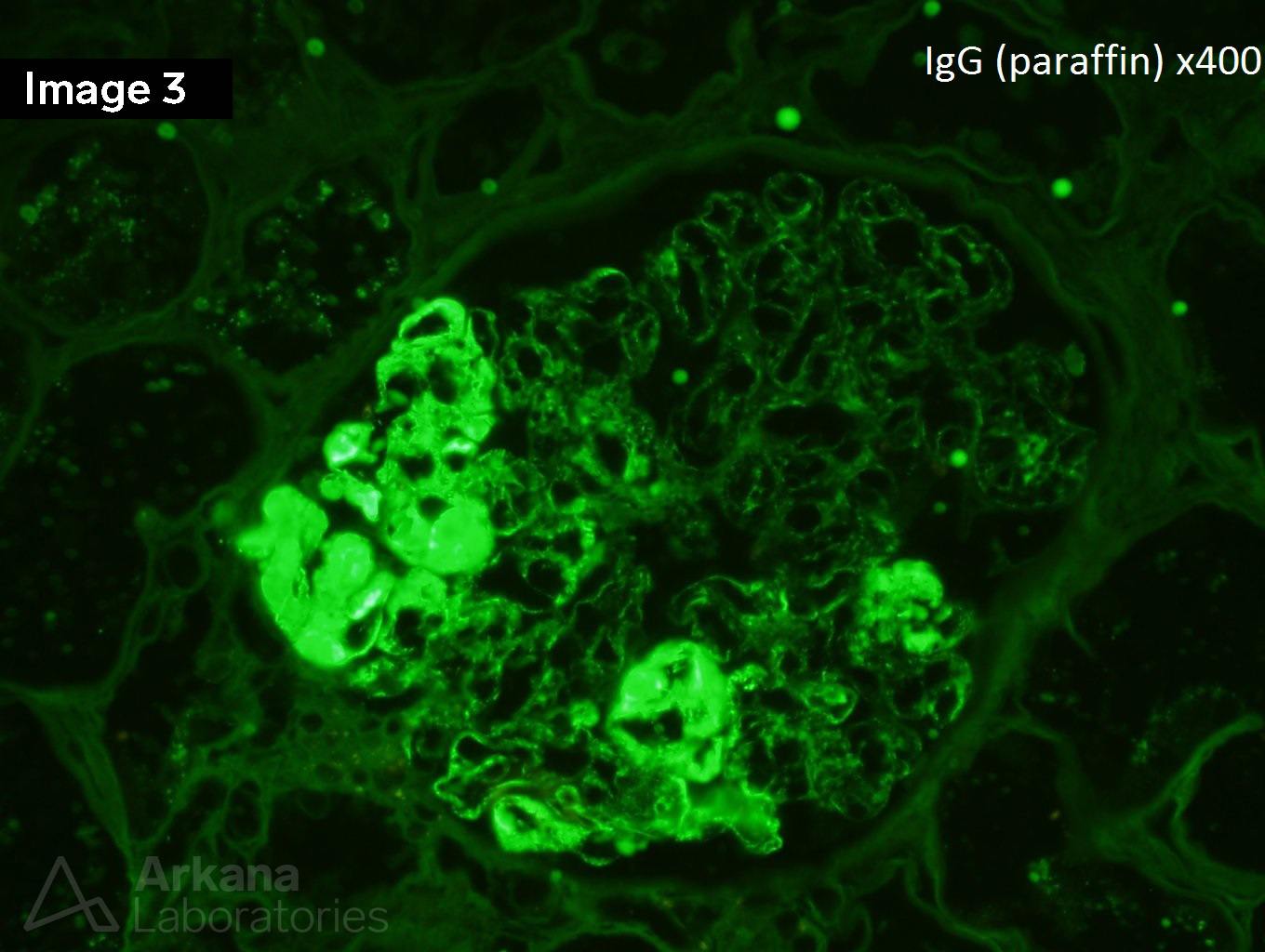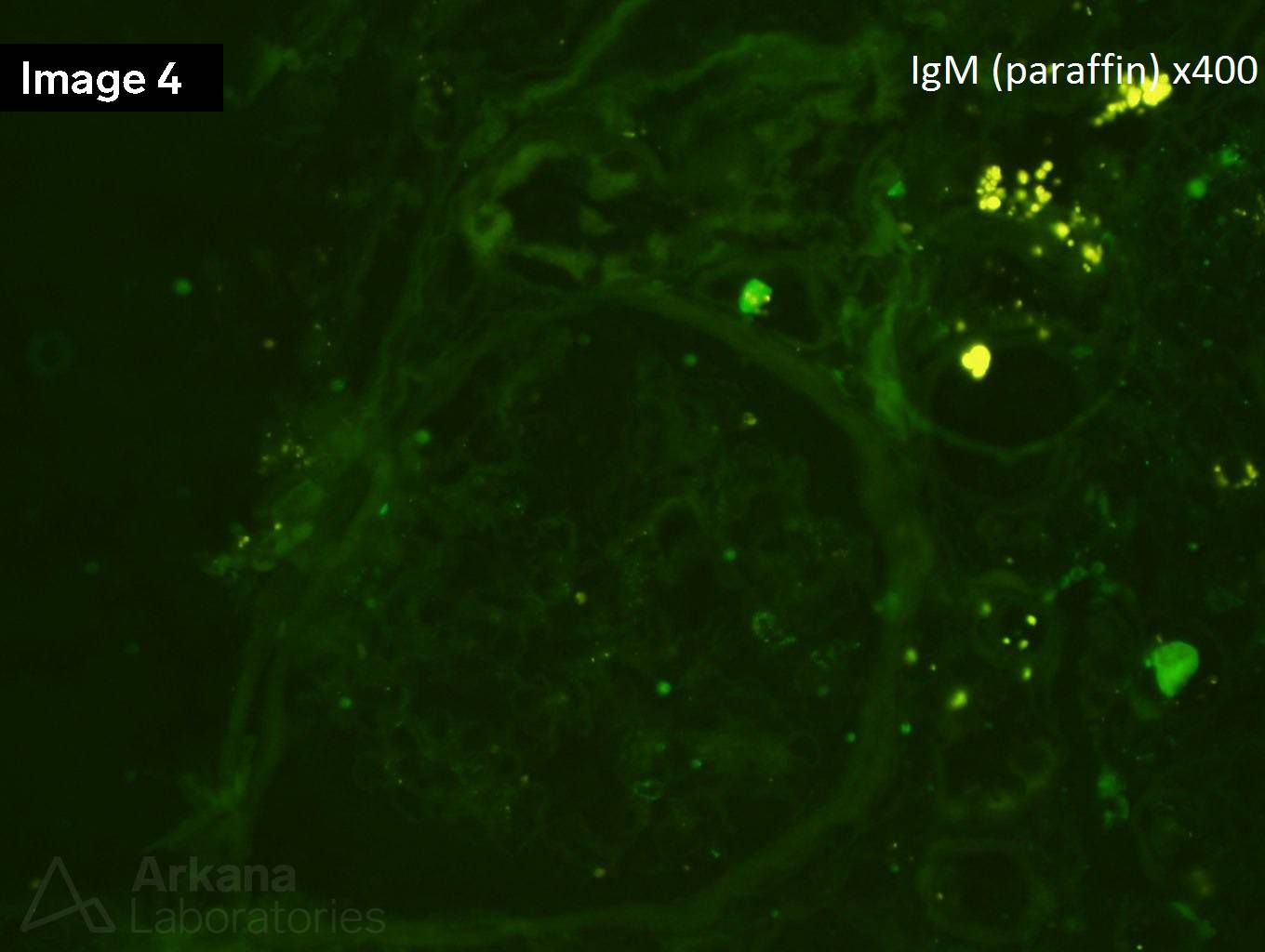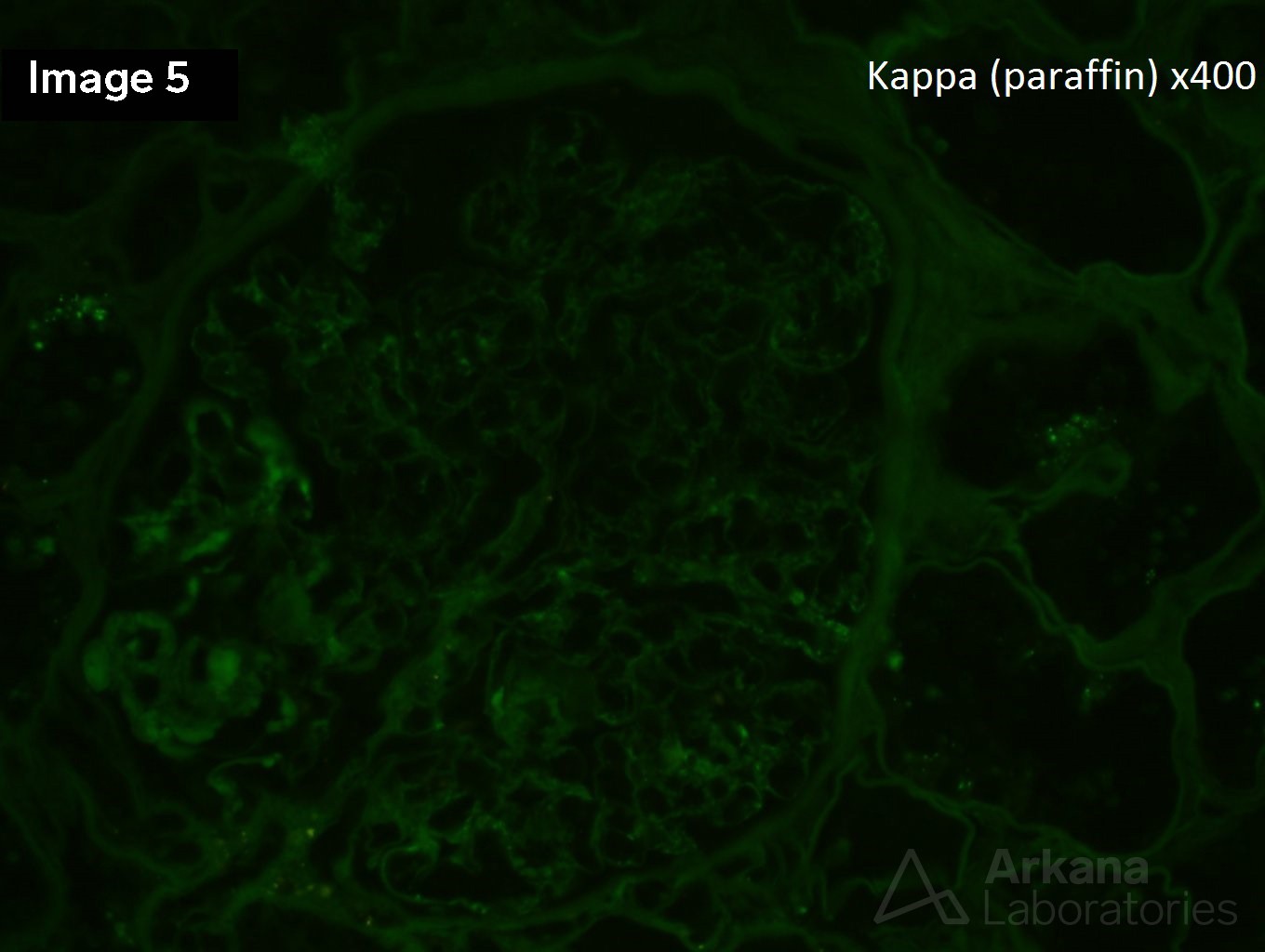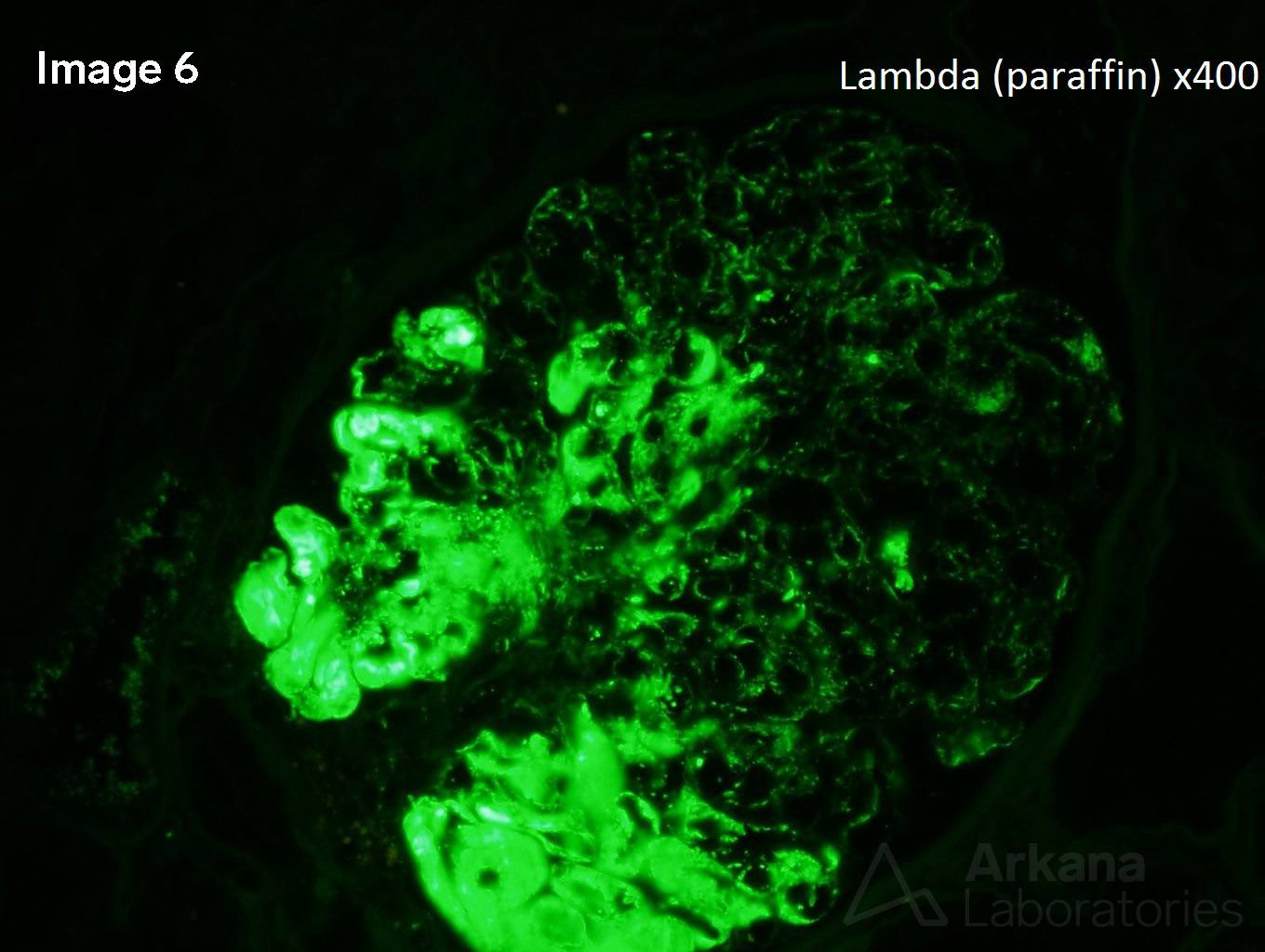The patient is a 75 year-old female who presents with proteinuria, a necrotic skin lesion on her lower extremity, and a creatinine of 5.5 mg/dL. Her serum complement levels (C3/C4) are low. Serologies for ANA, dsDNA, rheumatoid factor, c-ANCA, p-ANCA, anti-GBM, and ASO are negative. Her cryoglobulins are positive. Image 1 shows hyaline thrombi and image 2 shows mild interstitial fibrosis. Images 3, 4, 5, and 6 are IgG, IgM, kappa, and lambda, respectively. This is a case of Type 1 cryoglobulinemia.
Type 1 cryoglobulins are composed of a single monoclonal immunoglobulin that reversibly precipitates at low temperature (<37C). Type 1 cryoglobulinemia develops in the setting of protein-secreting monoclonal gammopathies such as MGUS or a B-cell lineage malignancy (multiple myeloma, CLL, Waldenstrom’s). Type 1 cryoglobulinemia frequently has cutaneous manifestations such as ulcerations and necrosis. In the largest study of type 1 cryoglobulinemia published in 2014, 32% of the patients had renal involvement. The level of cryoglobulins in the blood does not correlate with renal involvement. Severe manifestations are more frequent in patients with IgG cryoglobulins (as in this case) as compared with IgM cryoglobulins. The majority of patients with type 1 cryoglobulinemia receive a cytoreductive treatment to address their underlying lymphoproliferative disorder or monoclonal gammopathy. Recent data has shown that patients who lack overt malignancy (monoclonal gammopathy of renal significance) should receive chemotherapy to treat the “dangerous small B cell clone.” Overall, long-term survival is similar to patients with mixed cryoglobulinemia.
https://www.ncbi.nlm.nih.gov/pubmed/24532335
https://www.ncbi.nlm.nih.gov/pubmed/31198536
Quick note: This post is to be used for informational purposes only and does not constitute medical or health advice. Each person should consult their own doctor with respect to matters referenced. Arkana Laboratories assumes no liability for actions taken in reliance upon the information contained herein.
